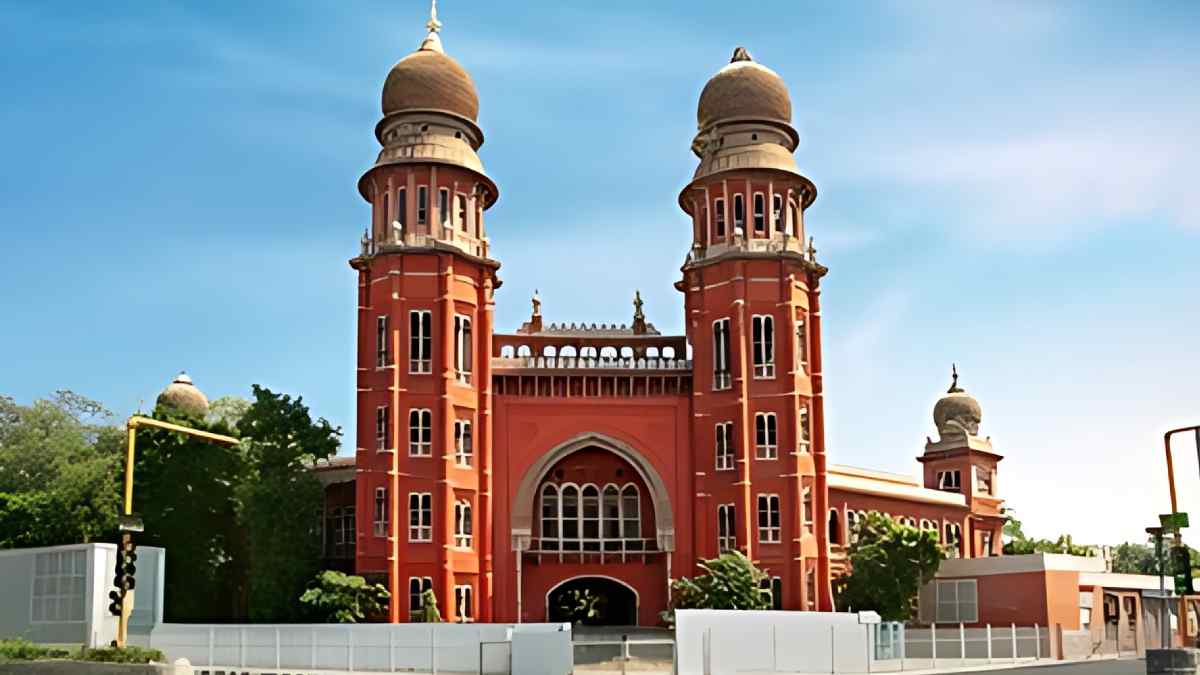In a recent landmark decision, the Madras High Court issued a ruling that could have significant implications for government employees facing suspension while criminal investigations are pending. The Employee Suspension case involved D. Jayakumar, a police officer who had been placed on administrative leave during an ongoing bribery investigation.
Madras High Court Rules on Police Officer’s Suspension
A Precedent-Setting Judgment
The judgment, delivered by Justices R. Suresh Kumar and K. Kumaresk Babu, marks a turning point in the handling of employee suspensions in cases where criminal prosecutions are pending.

The case at the center of this ruling dates back to February 7, 2011, when a Special Sub-Inspector of Police faced termination from his job following allegations of receiving a bribe from the Vigilance and Anti-Corruption Department. Consequently, he found himself entangled in a criminal charge.
Lengthy Suspension Battle
Jayakumar initially contested his suspension by appealing to an Appellate Authority. However, on March 27, 2014, his appeal was dismissed. Undeterred, he submitted a second appeal to the Joint Commissioner of Police’s office, but this too was denied on June 22, 2016. The authorities argued that the ongoing criminal case and their belief that reinstatement would not be prudent until the matter was resolved justified the continuation of the suspension.
Court’s Key Determinations
The Madras High Court’s ruling brings clarity to the matter. The court emphasized that suspensions solely based on the status of criminal cases should not be extended indefinitely without a valid reason.
Justice R. Suresh Kumar, in his verdict, asserted that when a government employee is suspended during a pending criminal case without concurrent disciplinary action, such suspension cannot continue indefinitely without just cause.
Furthermore, the court stressed that the justification for the ongoing criminal case cannot be perpetual. It directed that a review of the necessity for continuing the suspension should be conducted every quarter.
Court’s Directive and Outcome
Consequently, the court upheld the decision made by the learned Judge, which ordered the state to reassign Jayakumar to a non-sensitive position within four weeks and revoke the suspension orders.
Firstly, This ruling sets a precedent for similar cases, providing clarity on the limits of suspensions based solely on pending criminal proceedings. In fact, It emphasizes the importance of initiating disciplinary proceedings and ensuring that suspensions are not prolonged indefinitely without valid grounds.
Case Details:
- Case Name: Joint Police Commissioner v. Director General of Police
- Case Numbers: W.A. No. 1657 of 2019 and C.M.P. No. 11264 of 2019
- Bench: Justices K. Kumaresh Babu and R. Suresh Kumar
Read More
- Harmonious Resolution: Cafe Coffee Day Settles with IndusInd Bank
- Police records for each offender cannot be translated: HC
- Restoration of DIN: Expert NCLT Lawyers in Chennai
- NCLT Advocates | Expert Legal Representation for Proceedings
- Unpaid leaves continuing maternity leave during the Covid India
- Chennai Takes the Lead as the Best City for Women in India, According to Avtar’s TCWI 2023 Study
- Employee Benefit Law
- Education Loan Default: Chennai Court Orders ₹2.9 Lakh Repayment to SBI
- Patent Jurisdiction Clarified in Landmark Ruling by Madras HC
- Google has been ordered by the Delhi High Court to remove YouTube videos that criticize Indian spices

